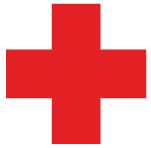 The Dispensary
The Dispensary
In four decades of independence, Zambia has found peace but not prosperity. Some two-thirds of the population live on less than a dollar a day. Our northern part of Zambia is the most deprived part of Zambia.
Ancient Enemies
The leading disease is malaria, transmitted via the bites of infected mosquitoes. It affects mostly mothers and children, causing severe anemia in the children, and even death by disrupting the blood supply to vital organs.
Pneumonia and other upper respiratory infections, such as bronchitis, persistent cough, and common colds affect people of all ages.
The Scourge
The economic challenges in Zambia have been compounded by one of the world's most devastating
HIV/AIDS epidemics.
 Zambia is one of the seven hardest-hit countries in that regard on the African continent.
Zambia is one of the seven hardest-hit countries in that regard on the African continent.
One in every six adults is living with HIV; some one million children are AIDS orphans. Worse, the number is expected to rise. Katibunga Monastery supports orphans of the neighborhood by paying their school fees and encouraging members of their extended families to stay and love the orphans.
Infections
Gastro-intestinal tract infections manifest as heartburn, indigestion, gastritis, diarrhea, dysentery, and the presence of schistosomiasis, amoebas, round worms, and hookworms.
Sexual Transmitted Infections (STI), such as gonorrhea, syphilis, and herpes zoster are common. HIV/AIDS affects people from diverse walks of life. Dermatological disease, such as fungal infection, skin rashes, wounds, and scabies are frequently presented.
Common eye and ear infections -- mostly conjunctivitis and otitis media -- can be treated in the dispensary. More serious cases result from dental infections, burns, accidents, insects, and snake bites.
Our Programm
- The first priority is focused on educating the people about preventing disease. Katibunga dispensary is engaged in educating people about the prevention of malaria, the nature of HIV infection, and how to manage other diseases.
- Treatment is the second step. The drugs for treating malaria are very expensive. Quinine, Artesunate (AS), Sulfadoxine-pyrimethamine (SP), or Fansidar, are given first to pregnant women. Antibiotics drugs, skin ointments and creams, and cough syrups are also priced dearly. All of these drugs, however, are usually available in the Zambia.
Your Help Is Needed
Most villagers can not afford to purchase medicines. The monks have to sell whatever drugs we do acquire at reduced prices.
Katibunga Monastery is dedicated to renewing our efforts at improving the health service by hiring qualified workers. Your support to do so is highly appreciated.